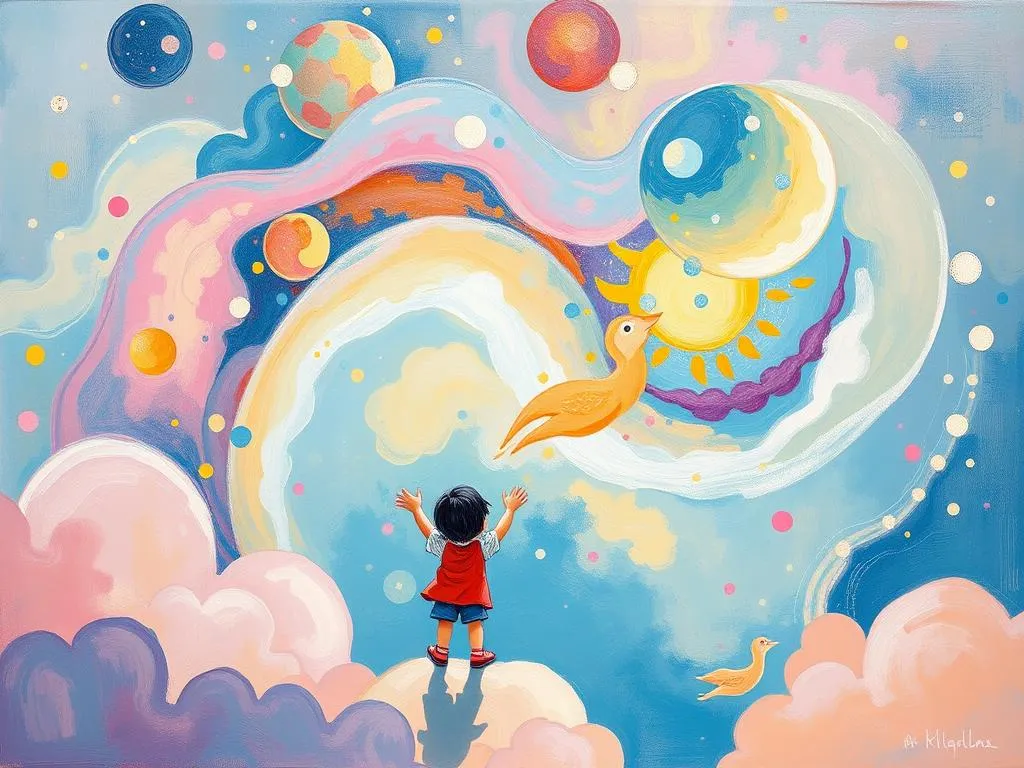
Dreams often serve as a window into our subconscious mind, revealing hidden emotions, desires, and memories. Among the many themes that arise in dreams, childhood stands out due to its deep-rooted influence on our identities and emotional well-being. Dreams about childhood days evoke nostalgia and can bring forth a myriad of feelings, ranging from joy to sadness. These dreams resonate with many individuals, as they often reflect significant moments from our formative years that shape who we are today. Understanding the symbolism behind childhood dreams can offer valuable insights into our current lives, relationships, and personal growth.
Symbolism and Meaning
When delving into the symbolism of childhood dreams, certain elements frequently emerge. These symbols can vary widely in interpretation, depending on personal experiences and cultural backgrounds. One common symbol is the home, often representing safety, comfort, and innocence. Dreaming of a childhood home might signify a longing for security or a desire to reconnect with simpler times when life felt less complicated.
Another prevalent symbol is play, which embodies creativity, freedom, and unrestrained joy. Engaging in playful activities in dreams can reflect a need to embrace spontaneity and enjoyment in waking life. Conversely, if the dream features elements of loss or playfulness turned sour, it may symbolize a struggle with unresolved issues from one’s childhood or a longing to reclaim lost joy.
Childhood friends or figures also appear frequently in these dreams. They can represent aspects of oneself that are lost or forgotten, or they may be reminders of lessons learned during pivotal moments in youth. Interactions with these figures can invoke feelings of nostalgia, but they can also challenge us to confront unresolved relationships or feelings of abandonment.
Additionally, school as a symbol in childhood dreams often signifies learning and personal development. This can manifest in dreams about being late for class or failing a test, reflecting anxiety about meeting expectations or fears of inadequacy. This symbolism emphasizes the inherent challenges of growth, both in childhood and adulthood.
The weather in dreams about childhood can also carry significant meaning. For instance, dreaming of a sunny day may reflect happiness and clarity, while storms might indicate unresolved emotions or turmoil from the past. The emotional climate depicted in such dreams can highlight how past experiences continue to affect one’s present state of mind.
Key Scenarios and Variations
Childhood dreams can take on many forms, each with unique scenarios that alter their interpretations. A common variation is the return to a childhood playground. Such a dream might evoke feelings of nostalgia, suggesting a desire to reconnect with the carefree aspects of life. However, if the playground appears dilapidated or abandoned, it may signify feelings of lost innocence or unresolved issues from that time.
Another scenario involves revisiting a childhood home. The emotions tied to this experience can vary greatly. If the home feels warm and inviting, it might represent a yearning for comfort and simplicity. In contrast, if the home is dark or foreboding, it could indicate unresolved family conflicts or a longing to escape from difficult memories.
Dreams where one interacts with childhood friends can also present a range of interpretations. If the interaction is positive and joyful, it may signify a need for support and connection in the present. However, if the interaction is fraught with tension or conflict, it could reflect unresolved issues from that friendship or a desire to reconcile with parts of oneself that feel lost.
School-related dreams, such as forgetting one’s locker combination or being unprepared for an exam, often symbolize anxiety about performance and self-worth. These scenarios can highlight feelings of inadequacy or fear of judgment that linger from childhood experiences.
In a more whimsical context, dreaming of fantastical adventures from childhood—like flying or exploring enchanted lands—can signify a yearning for creativity and exploration in adulthood. These dreams suggest a desire to break free from the constraints of daily life and embrace imagination and possibility.
Real-Life Connections and Takeaways
Understanding the themes and symbols in childhood dreams can lead to profound self-reflection and insights into one’s current life. To connect these dreams to real-life situations, one can start by reflecting on the emotions felt during the dream. Were you happy, fearful, or nostalgic? These feelings can provide clues about what aspects of your past are currently influencing you or what unresolved emotions need to be addressed.
Consider the symbols that appeared in your dream. For instance, if you dreamt of your childhood home, think about what that home represents to you now. Is it a place of comfort or conflict? Reflecting on these symbols can help you identify areas in your life that may need attention or healing.
Engaging in journaling can be a powerful tool for exploring these dreams further. Write down your dreams as soon as you wake up, noting any symbols, feelings, or interactions that stand out. Over time, patterns may emerge that can provide deeper insight into recurring themes in your life.
Another practical approach is to connect with childhood memories that may be influencing your current behavior or emotions. This might involve reaching out to childhood friends, revisiting familiar places, or simply taking time to reflect on what those experiences meant to you. Engaging with these memories can help you process any lingering feelings and facilitate personal growth.
Lastly, consider seeking out creative outlets that allow you to channel the joy and imagination associated with childhood. Whether through art, writing, or simply engaging in play, embracing creativity can help rekindle feelings of joy and fulfillment that may have been lost over time.
In conclusion, dreams about childhood days serve as a rich tapestry of memories, emotions, and insights. By exploring the symbolism and scenarios that arise in these dreams, individuals can gain valuable understanding of their current emotional landscapes and personal growth. Reflecting on these dreams invites a deeper connection with oneself and offers pathways to healing and self-discovery. Take time to reflect on your own childhood dreams and consider what messages they may hold for you today. Embrace the journey of self-exploration, and allow your dreams to guide you toward greater awareness and understanding of your past and present.







